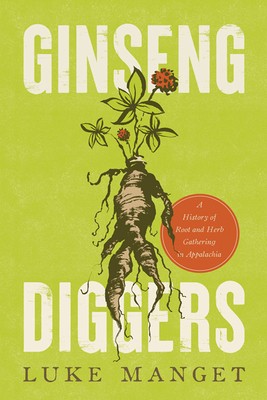
- We will send in 10–14 business days.
- Author: Luke Manget
- Publisher: University Press of Kentucky
- ISBN-10: 0813183812
- ISBN-13: 9780813183817
- Format: 16 x 23.1 x 3.1 cm, hardcover
- Language: English
- SAVE -10% with code: EXTRA
Reviews
Description
The harvesting of wild American ginseng ( panax quinquefolium), the gnarled, aromatic herb known for its therapeutic and healing properties, is deeply rooted in North America, but nowhere has it played a more important role than in the southern and central Appalachian Mountains. Made possible by a trans-Pacific trade network that connected the region to East Asian markets, ginseng was but one of several medicinal Appalachian plants that entered international webs of exchange. As the production of patent medicines and botanical pharmaceutical products escalated in the mid- to late-nineteenth century, southern Appalachia emerged as the United States' most prolific supplier of many species of medicinal plants. The region achieved this distinction due to both its biodiversity and the persistence of certain common rights that guaranteed widespread access to the forested mountainsides, regardless of who owned the land.
Following the Civil War, root digging and herb gathering became one of the most important ways landless and smallholding families earned income from the forest commons. This boom influenced class relations, gender roles, forest use, and outside perceptions of Appalachia, and it began a widespread renegotiation of common rights that eventually curtailed access to some plants such as ginseng.
Based on extensive research into the business records of mountain entrepreneurs, country stores, and pharmaceutical companies, Ginseng Diggers: A History of Root and Herb Gathering in Appalachia is the first book to unearth the unique relationship between the Appalachian region and the global trade in medicinal plants. Historian Luke Manget expands our understanding of the gathering commons by exploring how and why Appalachia became the nation's premier purveyor of botanical drugs in the late nineteenth century and how the trade influenced the way human residents of the region interacted with each other and with the forests around them.
EXTRA 10 % discount with code: EXTRA
The promotion ends in 19d.00:17:20
The discount code is valid when purchasing from 10 €. Discounts do not stack.
- Author: Luke Manget
- Publisher: University Press of Kentucky
- ISBN-10: 0813183812
- ISBN-13: 9780813183817
- Format: 16 x 23.1 x 3.1 cm, hardcover
- Language: English English
The harvesting of wild American ginseng ( panax quinquefolium), the gnarled, aromatic herb known for its therapeutic and healing properties, is deeply rooted in North America, but nowhere has it played a more important role than in the southern and central Appalachian Mountains. Made possible by a trans-Pacific trade network that connected the region to East Asian markets, ginseng was but one of several medicinal Appalachian plants that entered international webs of exchange. As the production of patent medicines and botanical pharmaceutical products escalated in the mid- to late-nineteenth century, southern Appalachia emerged as the United States' most prolific supplier of many species of medicinal plants. The region achieved this distinction due to both its biodiversity and the persistence of certain common rights that guaranteed widespread access to the forested mountainsides, regardless of who owned the land.
Following the Civil War, root digging and herb gathering became one of the most important ways landless and smallholding families earned income from the forest commons. This boom influenced class relations, gender roles, forest use, and outside perceptions of Appalachia, and it began a widespread renegotiation of common rights that eventually curtailed access to some plants such as ginseng.
Based on extensive research into the business records of mountain entrepreneurs, country stores, and pharmaceutical companies, Ginseng Diggers: A History of Root and Herb Gathering in Appalachia is the first book to unearth the unique relationship between the Appalachian region and the global trade in medicinal plants. Historian Luke Manget expands our understanding of the gathering commons by exploring how and why Appalachia became the nation's premier purveyor of botanical drugs in the late nineteenth century and how the trade influenced the way human residents of the region interacted with each other and with the forests around them.


Reviews